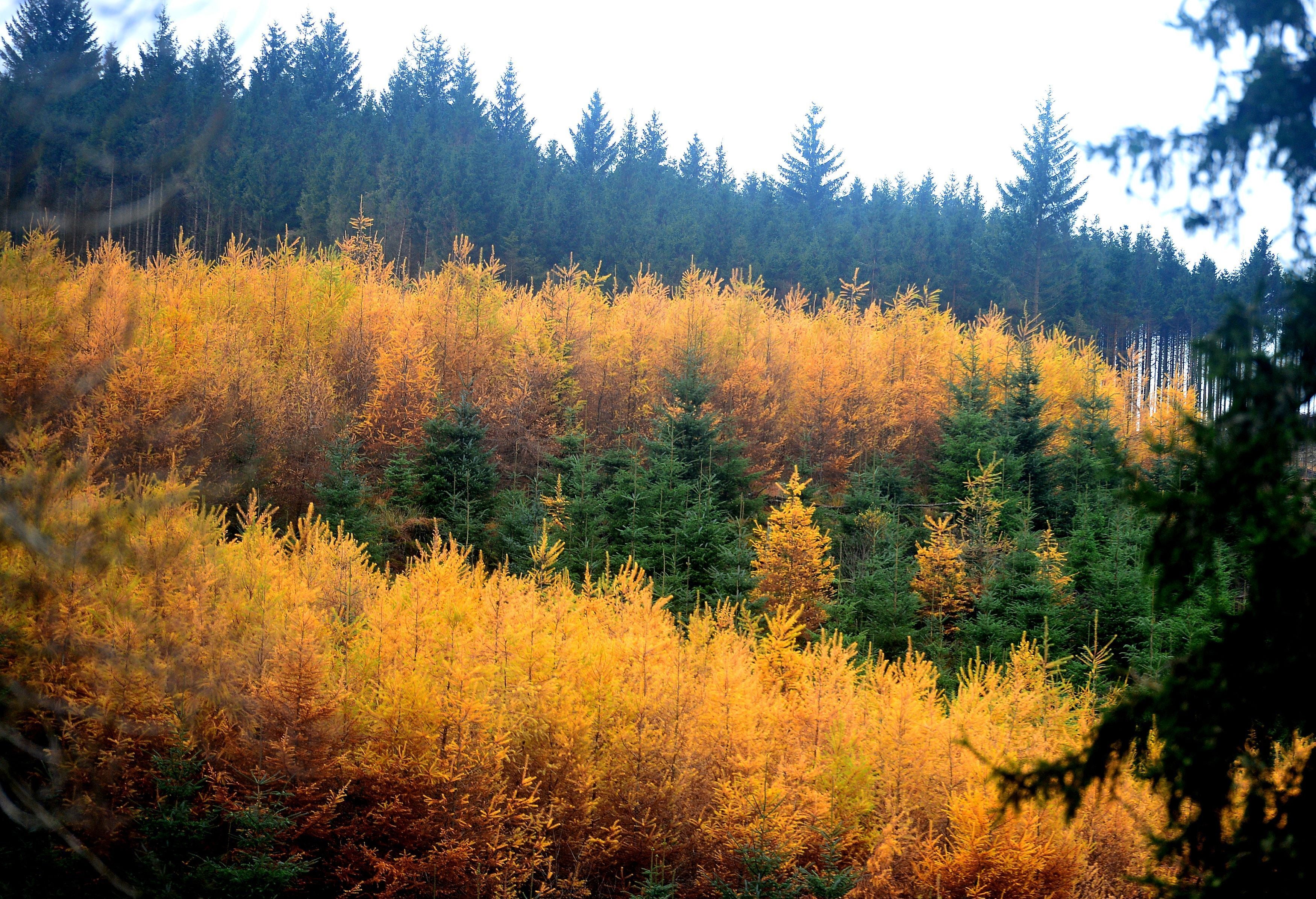Tree planting rates static despite Government pledge to boost woodland creation
Just under 14,000 hectares of new woodland was created across the UK last year, figures show.

Your support helps us to tell the story
From reproductive rights to climate change to Big Tech, The Independent is on the ground when the story is developing. Whether it's investigating the financials of Elon Musk's pro-Trump PAC or producing our latest documentary, 'The A Word', which shines a light on the American women fighting for reproductive rights, we know how important it is to parse out the facts from the messaging.
At such a critical moment in US history, we need reporters on the ground. Your donation allows us to keep sending journalists to speak to both sides of the story.
The Independent is trusted by Americans across the entire political spectrum. And unlike many other quality news outlets, we choose not to lock Americans out of our reporting and analysis with paywalls. We believe quality journalism should be available to everyone, paid for by those who can afford it.
Your support makes all the difference.Tree planting rates are not significantly increasing despite Government pledges to boost woodland creation to tackle the climate and nature crises, figures show.
Provisional figures from government agency Forest Research show 13,840 hectares of new woods were created in the past year, largely in Scotland, up only marginally on the past few years.
In England, where the Government has pledged to treble tree planting to 7,000 hectares a year by 2024 as part of climate and nature recovery efforts, 2,260 hectares of new woodland were planted in 2021/2022.
That is up slightly on the previous year, but down on 2019/2020, the figures show.
We have stretching and ambitious targets when it comes to tree planting
Conservationists warned that in England, the lack of new tree planting, combined with the poor condition of important sites and limited efforts to restore damaged native ancient woodland, showed the Government was failing to halt the long-term decline of woods.
The Government’s advisory Climate Change Committee has called for UK woodland cover to increase from its current level of 13% of land to at least 17% by 2050, to store carbon and meet the goal to reduce emissions to zero overall – known as “net zero”.
That requires around 30,000 hectares of new woodland a year.
Conservationists and scientific experts want to see a focus on diverse, native, broadleaf woodlands which both store carbon and provide habitat for struggling British species – and which they say will be more resilient to inevitable impacts of climate change such as drier conditions and new pests.
The figures show that just over half the area of trees planted across the UK were with broadleaved species, while the other half were conifers.
Some 10,480 hectares of the new planting was in Scotland, with conifers making up 60% of the total in the country.
Scotland missed its target of 13,500 hectares of new woodland in 2021/22, set out as part of the Scottish Government’s climate change plans, due to series of storms across the UK during the winter, Scottish Forestry said.
However, an ambition to create more than 4,000 hectares of native woodland was achieved.
In Wales, some 580 hectares of new woodland was created, and in Northern Ireland, 540 hectares of new woods were planted, both significantly up on the previous year and both largely made up of broadleaved planting.
Environment Secretary George Eustice, said: “We have stretching and ambitious targets when it comes to tree planting, and just last year we launched the England Trees Action Plan.
“Through the plan, we will plant 30,000 hectares of new woodland every year in the UK by the end of this Parliament, backed up by over £500m of Nature for Climate Funding.”
The Government is failing to halt the long term decline of our precious native woods and the wildlife they provide a home to
But the Woodland Trust said the latest figures for England cast doubt on the Government’s ability to meet goals to halt nature’s decline this decade.
The charity also warned that Forestry Commission data showed only 36% of woods designated as Sites of Special Scientific Interest (SSSIs) in England were in favourable condition.
Work to restore ancient woodland damaged by historic commercial forestry – where native trees were felled for conifer plantations – has declined, animals that rely on woodland continue to struggle and new tree diseases continue to arrive, the data show.
Andy Egan, head of conservation policy for the Woodland Trust, said: “Despite plenty of warm words, the latest figures show that the Government is failing to halt the long-term decline of our precious native woods and the wildlife they provide a home to.
“Urgent action is needed now if we are to stem the loss of species and begin nature’s recovery.
“Government needs to up its game in the face of the twin climate and nature crises and start to both regulate effectively and invest properly to protect and restore our native woods and trees and the wonderful benefits they provide to people and wildlife.”
But Arina Russell, public affairs manager for the Woodland Trust in Scotland, said the charity was “delighted” the target set for native woodland expansion in the country has been met and exceeded.
She said: “We want to see the Scottish Government go even further and set increased targets in the upcoming Biodiversity Strategy.
“These need to be for quality native woodland expansion but also for restoration of existing native woods.
“Today’s figures clearly show targets can be met. We now need to go further and faster.”